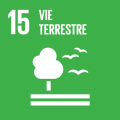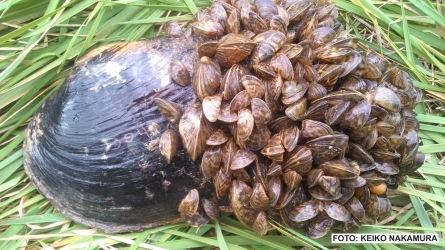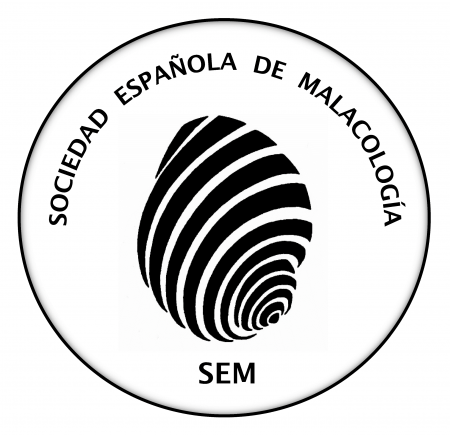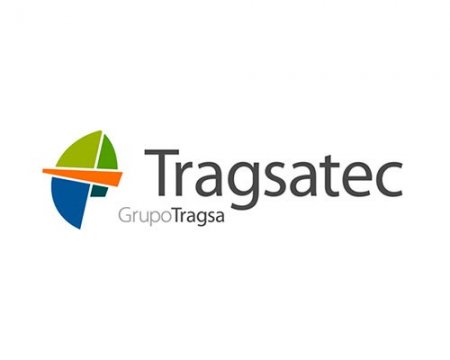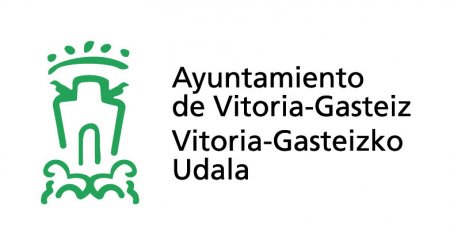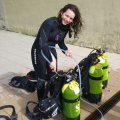Malacological Forum of the SEM 2024 – Workshop on invasive exotic mollusks in Spain
Description
Invasive alien species (IAS) are one of the main causes of loss of biological diversity in the biosphere. Its presence hinders the conservation of many species and habitats, both terrestrial and freshwater or marine, exerting a more noticeable impact on especially vulnerable ecosystems, such as islands and continental waters. The introduction of these species can also cause serious damage to the economy, especially to agricultural, livestock and forestry production, and even to public health. Mollusks are a diverse group of invertebrates that include several IAS for which the significant impact they have on the natural environment has been documented. Currently, a total of 12 taxa are included in the Spanish IAS Catalog: 5 gastropods (1 terrestrial, 3 from continental waters and 1 marine) and 7 bivalves (4 from continental waters and 3 marine). However, it is necessary to complete the available information, based on scientific knowledge, to improve its continuous management. Furthermore, the existence of other IAS is known in Spain or that could potentially be present in the short or medium term, but about which there is hardly any research to propose their cataloging or dissemination to raise awareness among society in general. To improve this scientific knowledge, the SEM 2024 Malacological Forum – Workshop on invasive exotic mollusks in Spain has been organized.
Objectives
Promote a meeting of malacology specialists to share the latest research results and management experiences on invasive exotic mollusks in Spain, in the context of the problem on a global scale.
Generate a space for reflection and debate (through conferences, presentations, round tables and communications) to address the difficulties of managing invasive exotic mollusks in terrestrial and aquatic ecosystems of fresh, brackish or marine waters.
Implement knowledge about invasive exotic mollusks in Spain within the PRTR-ESMOLINCO Project, which is being carried out by the Euskoiker Foundation in collaboration with the SEM through a contract with TRAGSATEC on behalf of MITECO, within the framework of the Recovery, Transformation and Resilience Plan Financed by the European Union – Next Generation EU.
Promote the scientific meeting of the members who form the study groups of the target species of the PRTR-ESMOLINCO Project: terrestrial continental, aquatic continental and marine.
Activity directed to
- University student
- Professionals
Directors

Benjamín Juan Gómez Moliner
UPV/EHU, Catedrático Universidad
Es doctor en Zoología por la UPV/EHU y Catedrático de Universidad, con destino docente en la Facultad de Farmacia. Su actividad docente se concentra en el Grado de Ciencias Ambientales, impartiendo las asignaturas en castellano de “Biología Animal. Zoología”, “Biodiversidad”, “Casos prácticos de contaminación ambiental” y “Técnicas aplicadas al trabajo de campo”. Tiene reconocidos cinco sexenios de investigación y un sexenio de transferencia del conocimiento. Su investigación como miembro del Grupo de Investigación Genes, Poblaciones, Ecosistemas: Investigación Fundamental y Aplicada – GIC 21/202 de la UPV/EHU, se centra en estudios de filogenia, filogeografía, taxonomía y estructuración poblacionales, usando los moluscos como modelo biológico, así como diferentes especies de vertebrados de interés en conservación. Actualmente es el Coordinador e Investigador Principal del proyecto PRTR-ESMOLINCO, centrado en la conservación de especies de moluscos e invertebrados costeros de interés en conservación y de especies exóticas invasoras. Tiene reconocidos cinco sexenios de investigación y un sexenio de transferencia del conocimiento.
Speakers
Actualmente, trabajo en TRAGSATEC como Técnica coordinadora del Proyecto “PRTR-ESMOLINCO”, cuyo objetivo principal es mejorar el conocimiento del estado de conservación de los moluscos e invertebrados costeros a nivel estatal. Desde 2019, formo parte del equipo de investigación científica del Departamento de Zoología y Biología Celular Animal (UPV/EHU), colaborando en diversos estudios que incluyen trabajos sobre poblaciones de especies malacológicas. Soy doctora en Microbiología y he desarrollado mi carrera profesional en el estudio de la Ecología Microbiana, tanto en ecosistemas marinos como con comunidades microbianas del aire. En 2022, obtuve una beca postdoctoral que me permitió realizar una estancia en el Centro Oceanográfico de Canarias (COC) - Instituto Español de Oceanografía (IEO-CSIC). Durante esta estancia, participé en campañas oceanográficas para estudiar el transporte de microorganismos a través de las corrientes de aire e identificar cómo pueden afectar potencialmente la diversidad microbiana de los ecosistemas marinos.
Soy profesor titular de Ecología en la Universidad de Alcalá. Mi investigación se centra en la evaluación de los efectos de las especies exóticas y de diferentes agentes estresantes sobre los ecosistemas y sus poblaciones. Estoy especialmente interesado en los efectos de la hojarasca exótica en el funcionamiento del suelo y en la toxicidad de sus extractos para los organismos acuáticos, vinculando los ecosistemas terrestres y acuáticos. Además, tengo una larga experiencia investigadora en el desarrollo de técnicas de seguimiento del comportamiento de los organismos acuáticos y su aplicación a la ecología y a la ecotoxicología. En el apartado docente soy profesor de ecología, imparto clase en los Grados de Ciencias Ambientales y de Criminalística: Ciencias y Tecnologías Forenses en la Universidad de Alcalá. Entre las asignaturas que coordino se encuentran "Ecología: comunidades, ecosistemas y aplicaciones" y "Restauración de Espacios Degradados". He impartido docencia y realizado investigación en universidades de Chile y de Países Bajos.
Ramón Manuel Álvarez Halcón
Universidad de Zaragoza, Investigador Doctoral
Licenciado en Filosofía por la UNED, Diplomado en Profesorado de EGB (especialidad de Ciencias) por la Universidad de Zaragoza, Máster Universitario en Comunicación y Educación en la Red por la UNED, DEA en Propiedades Públicas y Medio Ambiente (con suficiencia investigadora en Derecho Administrativo) por la Universidad de Zaragoza, DEA en Lógica, Historia y Filosofía de la Ciencia (con suficiencia investigadora en Lógica y Filosofía de la Ciencia) por la UNED y Experto Universitario en Derecho Ambiental por la UNED. Es investigador doctoral en el Departamento de Derecho Público de la Universidad de Zaragoza y está especializado en el marco jurídico de las especies exóticas invasoras. Desarrolla su trabajo profesional como empleado público en una oficina de prevención de riesgos laborales de la Administración General del Estado y de gestor ambiental por cuenta propia (autónomo) con experiencia en trabajos de malacología para distintas administraciones públicas y empresas (sobre moluscos amenazados, exóticos invasores y objeto de aprovechamiento alimentario), materias en las que ha realizado diversas publicaciones. Actualmente es Secretario de la SEM y colabora en el Proyecto PRTR-ESMOLINCO.

José Ramón Arrébola Burgos
Fac. de Biología (Univ. de Sevilla), Prof. Titular y Director
Doctor en Biología por la Universidad de Sevilla. Profesor director del Departamento de Zoología de la Facultad de Biología (Universidad de Sevilla). Especializado en Moluscos, especialmente terrestres. Responsable del Programa para la Conservación y Uso Sostenible de los Caracoles Terrestres de Andalucía (1998 a 2015) (Junta de Andalucía). Vocal de la Sociedad Española de Malacología. Miembro de la Unión Internacional para la Conservación de la Naturaleza como asesor en moluscos terrestres (listas rojas). Miembro del Comité Científico nacional del Listado de Especies Silvestres en Régimen de Protección Especial y del Catálogo Español de Especies Amenazadas y Catálogo Español de Especies Exóticas Invasoras. Socio fundador de Heligemas SL, Spin off creada en 2011 de la Facultad de Biología de la Universidad de Sevilla dedicada a la helicicultura.

Laura Capdevila Argüelles
GEIB Grupo Especialista en Invasiones Biológicas, Coordinadora
Bióloga, comenzó su trabajo en la temática de las invasiones biológicas en el año 2000, fundando el GEIB, entidad que actualmente coordina. Actualmente es Técnico en SEO BirdLife, para el Proyecto Life Coop Cortaderia Asistencias técnicas sobre invasoras más relevantes: -2023-2024 Plan Estratégico Gallego para la Gestión de EEI (Xunta de Galicia) -2022-2023 Especies autóctonas y exóticas invasoras: mejora del conocimiento del estado de conservación (Tragsatec) -2018-2019 Priorización de Especies Exóticas Invasoras (EEI) y colaboración en el diseño y elaboración de contenidos para un Catálogo de experiencias de gestión de EEI en la Red de Parques Nacionales (Tragsatec) -2018 Análisis de aplicabilidad de EICAT en especies de agua dulce a la escala local (UICN) -2017-2018 EEI preocupantes para la Unión Europea vinculadas a aguas continentales superficiales y vinculadas al marco competencial de la Administración Hidráulica (Tragsatec) - 2017-2018 Biocambio. Cambio Climático y Especies Exóticas Invasoras en la Red de Parques Nacionales: diagnóstico, adaptación y gobernanza (Fundación Biodiversidad) -2016 Desarrollo de una base de datos de las especies exóticas invasoras de los ríos y riberas de la Cuenca Hidrográfica del Duero (CHD)
María Concepción Durán Lalaguna
Doctora en Ciencias por la Universidad de Zaragoza. Licenciada en Ciencias Biológicas por la Universidad de Valencia. Su trabajo se centra desde 1997 en la puesta a punto y desarrollo de la Directiva Marco del Agua, así como en el seguimiento de los trabajos relacionados con la invasión del mejillón cebra en la cuenca del Ebro. Puso en marcha el Grupo de trabajo de técnicos de confederaciones hidrográficas y EEI. Dirige el grupo de trabajo de técnicos de Comunidades Autónomas y EEI, en la demarcación del Júcar. Formó parte del grupo de expertos nacionales del mejillón cebra, en cuyo ámbito se elaboró la Estrategia Nacional del mejillón cebra. Ponente en Congresos nacionales e internacionales como el International Conference on Aquatic Invasive Species de Ennis (Irlanda) y de Niejmegen (Holanda) o el Congreso Nacional de EEI y es ponente habitual del Congreso Ibérico de Limnología. Cuenta con abundantes publicaciones nacionales e internacionales sobre Limnología y ha participado recientemente en el primer libro publicado sobre mejillón cebra en Europa. Ha dirigido una cincuentena de trabajos relacionados con el control y la gestión del mejillón cebra. Actualmente es la responsable de estos trabajos en la CHJ.

Serge Gofas
Universidad de Málaga, colaborador honorario
Doctor en ciencias biológicas por el Muséum National d’Histoire Naturelle de París, ha sido investigador en dicha institución de 1990 a 1998, y de 1998 a 2001 ha sido profesor en el departamento de Biología Animal de la Universidad de Málaga, hasta su jubilación. Su investigación está centrada en la sistemática de los moluscos marinos de Europa y África occidental, con particular atención a la fauna del entorno del estrecho de Gibraltar. En este ámbito ha participado en varias campañas oceanográficas y proyectos de investigación dirigidos al estudio de la fauna bentónica. Es editor taxonómico y miembro del comité científico en la base de datos “World Register of Marine Species”. En la Sociedad Española de Malacología, es actualmente editor de la revista “Iberus”.

Ricardo Gómez Calmaestra
Dr. en CC. Biológicas y Jefe del Servicio de Vida Silvestre (SG de Biodiversidad Terrestre y Marina, MITECO), que atiende: 1) Especies amenazadas (EA). Desarrollo normativo; protección legal mediante gestión y actualización del CEEA y LESRPE; Declaración “En situación crítica”. Con CCAA: elaboración, seguimiento y aplicación de estrategias nacionales para amenazadas; Coordinación de GT para actuaciones de conservación; Proyectos para conocimiento, recuperación y conservación de EA; Seguimiento de normativa comunitaria, así como convenios internacionales; Censo, seguimiento e informes del estado de conservación de especies a escala nacional, comunitaria (informes sexenales) e internacional. 2) Especies exóticas invasoras (EEI) y alóctonas. Desarrollo normativo; Desarrollo y actualización del CEEEI. Con CCAA: elaboración, seguimiento y aplicación de Estrategias de gestión, control y posible erradicación de EEI; Gestión de la RNAT de EEI; Coordinación para acciones para lucha contra EEI; Gestión de la autorización de importación a España de “Especies alóctonas … ” y gestión del correspondiente Listado; Informes preceptivos (para el MAPA) para importación, uso y liberación de organismos de control biológico exóticos.

Benjamín Juan Gómez Moliner
UPV/EHU, Catedrático Universidad
Es doctor en Zoología por la UPV/EHU y Catedrático de Universidad, con destino docente en la Facultad de Farmacia. Su actividad docente se concentra en el Grado de Ciencias Ambientales, impartiendo las asignaturas en castellano de “Biología Animal. Zoología”, “Biodiversidad”, “Casos prácticos de contaminación ambiental” y “Técnicas aplicadas al trabajo de campo”. Tiene reconocidos cinco sexenios de investigación y un sexenio de transferencia del conocimiento. Su investigación como miembro del Grupo de Investigación Genes, Poblaciones, Ecosistemas: Investigación Fundamental y Aplicada – GIC 21/202 de la UPV/EHU, se centra en estudios de filogenia, filogeografía, taxonomía y estructuración poblacionales, usando los moluscos como modelo biológico, así como diferentes especies de vertebrados de interés en conservación. Actualmente es el Coordinador e Investigador Principal del proyecto PRTR-ESMOLINCO, centrado en la conservación de especies de moluscos e invertebrados costeros de interés en conservación y de especies exóticas invasoras. Tiene reconocidos cinco sexenios de investigación y un sexenio de transferencia del conocimiento.

Ambientólogo especializado en Sistemas de Información Geográfica y Geoinformática para la gestión de biodiversidad y recursos naturales. Graduado en Ciencias Ambientales en el 2022 por la Universidad del País Vasco (UPV/EHU). Desde el segundo curso de grado he colaborado en diferentes proyectos malacológicos con el Departamento de Zoología de la Facultad de Farmacia de la UPV. En éstos, empleé herramientas de geoinformación para modelizar y delimitar el hábitat de moluscos incluidos en la Directiva Hábitats como Elona quimperiana y Geomalacus maculosus. Además, he llevado a cabo trabajos de genética molecular con gasterópodos y bivalvos continentales. En septiembre de 2022 comencé a cursar el Máster Universitario en Geoinformática para la gestión de Recursos Naturales de la Universidad de León con el objetivo de especializar mi formación hacia los SIG aplicados al medio ambiente, y en especial, a la gestión y conservación de fauna y flora. Actualmente trabajo para TRAGSATEC, en el grupo de coordinación del PRTR-ESMOLINCO (Mejora del conocimiento del estado de conservación de los moluscos e invertebrados costeros de España): análisis de datos, redacción de informes, generación de cartografía, estudios geográficos y campo.

Ángel Antonio Luque del Villar
Doctor en Ciencias Biológicas (Universidad Complutense, 1984). Profesor Ayudante y Profesor Titular de Biología Animal (1977-2019, Departamento de Biología, Universidad Autónoma de Madrid). Miembro Honorario del Centro de Investigación en Biodiversidad y Cambio Global (Universidad Autónoma de Madrid, CIBC-UAM, 2019-2024). Líneas de investigación: taxonomía, sistemática, ecología y biogeografía de moluscos marinos; comunidades bentónicas marinas y conservación de especies, hábitats y áreas marinas. Un centenar de publicaciones, 83 comunicaciones a congresos y 45 informes científicos y técnicos. Director de 6 proyectos de investigación, 3 contratos de consultoría científico-técnica y 4 expediciones científicas. Participación en 11 proyectos de investigación, 12 contratos de consultoría y 8 campañas científicas. Director de 4 tesis doctorales, 1 tesis de máster y 3 tesis de grado, y tutor de 11 tesis doctorales y 9 proyectos de investigación de posgrado. Organizador de 6 congresos, talleres y exposiciones científicas. 31 cursos monográficos, seminarios, talleres y conferencias impartidos. Coordinador del Grupo de Moluscos del Grupo Nacional de Especialistas en Especies de la Comisión de Supervivencia de Especies de la UICN (2024).

Alberto Martínez Martínez Orti
Universitat de València, Profesor
Profesor Zoología y Director y Profesor de Investigación del Museu Valencià d’Historia Natural y Presidente del Instituto Valenciano de Biodiversidad, Taxonomía y Conservación Animal (i\Biotaxa). Miembro científico-investigador de Human Parasitic Disease Unit (Unidad de Parasitología Sanitaria), centro de referencia de la OMS-FAO de fascioliasis y sus moluscos vectores. Miembro de RICET (Red de Investigación de Centros Enfermedades Tropicales). Mi línea de investigación versa sobre taxonomía, sistemática, filogenia de moluscos, moluscos como vectores de enfermedades parasitarias, plagas, ecología, conservación y paleontología. Participo en los Másteres de Gestión y Control de Plagas, Enfermedades tropicales parasitarias y Biodiversidad y Evolución (Univ. de Valencia). Los resultados de mi investigación han sido publicados en más de 130 artículos, en revistas nacionales e internacionales sobre moluscos continentales, y 4 libros y diversos capítulos de libro. directiva de la Sociedad Española de Malacología desde 2005. Miembro experto del Comité Científico sobre moluscos continentales de la Unión internacional para la Conservación de la Naturaleza (IUCN) desde 2009 y actualmente formo parte del Grupo Nacional de Espec

Ramón Martínez Torres
Tragsatec, Experto
A principios de siglo, me incorporé como biólogo al grupo Tragsa, en el equipo que participó en el inventario Nacional de Biodiversidad, primer intento serio desde la Administración, de tener una información general de biodiversidad para todo el territorio español, con vocación de actualización periódica. Tras diferentes avatares desde la jefatura del departamento de fauna de Tragsatec, en el que he participado en proyectos de conservación y gestión de especies de fauna, de financiación nacional y europea por más de 14 años, vuelvo al origen, que es el actual proyecto de seguimiento de fauna. Este proyecto, encargado por el MITECO y financiado con fondos europeos (PRTR) parte de una vocación que pretende continuar con el inventario de la primera década de los 2000, apoyándose en los principales actores científicos de España (Sociedades científicas, Universidades y centros de investigación) como modo de afianzar la consecución de información fidedigna y periódica de biodiversidad a fin de poder evaluar, de modo sólido, la eficacia de las políticas de conservación actuales.
Graduada en Ciencias del Mar por la Universidad de Vigo y Máster Interuniversitario en Biología Marina por la Universidad de Santiago de Compostela, especializada en cefalópodos. Posee formación en divulgación ambiental, incluyendo la titulación como Guía Oficial del Parque Nacional Marítimo-Terrestre de las Islas Atlánticas de Galicia, así como en formación de profesorado y experimentación animal. Ha participado en proyectos sobre la ecología, genética y cultivo del pulpo común (Octopus vulgaris) en la Universidade de Vigo y el Instituto de Investigaciones Marinas del Consejo Superior de Investigaciones Científicas (CSIC). En la actualidad, es guía del Parque Nacional Marítimo-Terrestre de las Islas Atlánticas de Galicia, trabajo que compagina con el bloque de ciencia ciudadana del Proyecto PRTR-ESMOLINCO que dirige la Fundación Euskoiker, con la asistencia científica, organizativa y técnica de la Sociedad Española de Malacología, para TRAGSATEC. También imparte y coordina la docencia del curso de Fauna y Ecología Marina de la empresa de formación ambiental Alen. Es, asimismo, corresponsal de la revista Noticiario de la SEM y coordina las redes sociales de la Sociedad Española de Malacología.
Julián Javier Morales Martín
Ecohydros S.L., Técnico de proyectos
Doctor en Ciencias Biológicas por la Universidad de Salamanca. Ha desarrollado el CV particularmente en aspectos técnicos y científicos relacionados con la zoología y ecología acuática en medios epicontinentales, y el estudio y control de especies exóticas invasoras. Especialista en bivalvos dulceacuícolas autóctonos y exóticos.

Diego Moreno Lampreave
Doctor en biología especializado en moluscos he trabajado en el Museo Nacional de Ciencias Naturales, Madrid (CSIC), en el Proyecto Fauna Ibérica (1989-1991), incluyendo las 4 campañas Fauna I, II, III y IV (1991 y 1996). Desde 1991 trabajo para la administración ambiental de la Junta de Andalucía en la Empresa de Gestión Medioambiental S.A. (EGMASA), luego convertida en Agencia de Medio Ambiente y Agua (AMAYA), en varios periodos: 1991-1996, barco AMA-II en calidad ambiental en Almería y Granada. 1999-2004, director del Aula del Mar de Cabo de Gata (“El Corralete”), en educación ambiental en el Parque Natural Cabo de Gata-Níjar, incluyendo las Jornadas de Reservas Marinas con la I Reunión Iberoamericana de Reservas Marinas (2001). 2004-2024, en el Programa de Gestión Sostenible del Medio Marino Andaluz, con un equipo de trabajo regional de biólogos buceadores para el seguimiento de especies marinas amenazadas, hábitats, etc., con la participación en el libro Rojo de los Invertebrados de Andalucía (2008) y en los proyectos Life Posidonia Andalucía (2011-2016), Blue Natura (2015-2019) e INTEMARES (2020-2024). Participación como autor en numerosas publicaciones, incluido el libro “Moluscos marinos de Andalucía” (2011).

Marta Pola Pérez
Universidad Autónoma de Madrid, Profesora Titular de Universidad
Licenciada en Ciencias Biológicas por la Universidad Autónoma de Madrid (UAM) en julio de 1999. Doctor en Ciencias Biológicas por la UAM (mayo de 2006). Actualmente Profesora Titular de Universidad en la UAM. En cuanto a actividad investigadora e indicadores de calidad, tengo 3 secciones de investigación (sexenios), la última otorgada en 2020. He publicado más de 100 artículos científicos, 60 de los cuales están publicados en revistas con índice de impacto, con 30 publicaciones en el primer cuartil e Índice h: 17 (WOS); además, soy autora de un libro y dos capítulos de libro, así como de varios artículos de divulgación científica e informes técnicos inéditos. He presentado más de 60 comunicaciones en 29 congresos internacionales y 10 comunicaciones en 4 congresos nacionales. He participado en 25 proyectos competitivos, tres de ellos como Investigador Principal. En cuanto a la actividad docente, tengo 2 tramos de docencia concedidos (quinquenios), el último obtenido en 2019. He dirigido 7 tesis doctorales, además de tutorizar un total de 50 estudiantes, entre Proyectos de Fin de Curso, Trabajo Fin de Grado y Trabajo Fin de Máster. He impartido e imparto numerosas materias teóricas y prácticas.

Joaquim Reis
MARE - Marine and Environmental Sciences Centre, Researcher
Joaquim Reis es investigador en el MARE (Centro de Ciências do Mar e do Ambiente) en la Universidad de Lisboa y consultor para la empresa BIOTA – Estudos y Divulgación en Ambiente. Es Doctor en Biología de la Conservación por la Universidad de Lisboa. Su área de investigación es la ecología y conservación de sistemas de agua dulce, con destaque para la malacología, biodiversidad, parasitología, padrones evolutivos, dinámica poblacional y adaptación a cambios hidrológicos. Tiene 24 años de experiencia en proyectos con bivalvos de agua dulce, y ha participado y coordenado numerosos proyectos de I&D, conservación y consultoría tanto en Portugal como en el extranjero. Ha sido el autor del plan de acción regional para el mejillón-cebra en el área del Alqueva, y ha coordinado el grupo de trabajo para el plan nacional del mejillón-cebra en Portugal. También ha coordinado el Atlas de los bivalvos de agua dulce de Portugal, la evaluación de los moluscos en el Libro Rojo de los Invertebrados de Portugal, y actualmente coordina los trabajos para actualizar la situación de Unio tumidiformis en España en el ámbito del proyecto ESMOLINCO.

José Templado González
CSIC
Licenciado en Ciencias Biológicas por la Universidad Complutense de Madrid en 1979 y Doctorado por dicha universidad en 1982. Desde 1988 hasta la forma parte de la plantilla de investigadores del Museo Nacional de Ciencias Naturales (CSIC) en el departamento de Biodiversidad y Biología Evolutiva. Su investigación se ha centrado en el estudio la biodiversidad marina en un sentido amplio, abarcando temas de gestión y conservación, especies y áreas marinas protegidas, especies introducidas, sistemática, filogenia, biología reproductora, mayoritariamente en campo los moluscos gasterópodos. Es autor de 117 artículos en revistas científicas, de 20 libros y de 43 capítulos de libros. Ha sido miembro Fundador y Presidente de la Sociedad Española de Malacología, Vicedirector de Investigación del Museo Nacional de ciencias Naturales (CSIC) y Jefe del Departamento de Biodiversidad y Biología Evolutiva. Forma parte del Comité Editorial de varias revistas y de la Serie Fauna Ibérica. Ha participado en 43 congresos habiendo impartido 8 conferencias invitadas y presentado un total de 66 comunicaciones y formado parte del Comité Científico u Organizador en 11 de ellos. Ha formado parte del tribunal de 56 Tesis Doctorales.

Carmen Salas Casanova
Universidad de Málaga, Profesor Titular
Carmen Salas Casanova es doctora en Biología por la Universidad de Málaga (UMA) y Profesora Titular en la Facultad de Ciencias de la UMA. Su actividad docente se desarrolla actualmente en los grados de Biología (Zoología y Biodiversidad Animal en la Cuenca Mediterránea) y Bioquímica (Biotecnología Marina), así como en el master de Diversidad Animal y Medio Ambiente de la UMA. Es actualmente responsable del grupo de Investigación RNM 141 de la Junta de Andalucía. Con más de 130 publicaciones, su investigación se ha centrado en el estudio de los moluscos marinos, en tres líneas: (1) estudio taxonómico de bivalvos y de las comunidades de moluscos asociadas a distintos hábitats del medio marino; (2) estudio de reproducción y ciclos biológicos de moluscos y otros invertebrados y (3) estudios sobre la biomineralización en moluscos. Actualmente es la Presidenta de la Sociedad Española de Malacología.
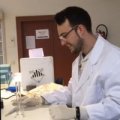
Actualmente trabajo en TRAGSATEC como técnico de cálculo para el proyecto PRTR-ESMOLINCO. Doctor en Zoología: Biodiversidad, Funcionamiento y Gestión de Ecosistemas (7 publicaciones). La tesis versó sobre Sistemática Molecular y Taxonomía del Género Chondrina (Gastropoda, Pulmonata, Chondrinidae) en la península ibérica. En el año 2017 realicé una estancia en el Royal Belgian Institute of Natural Sciences donde profundicé en el conocimiento en técnicas moleculares de transcriptómica y proteogenómica con moluscos terrestres. En julio de 2016 realicé un Posgrado en la Universidad de Barcelona sobre Filogenia y Genealogía del ADN. Desde 2015 he trabajado con el equipo de investigación científica del Departamento de Zoología (UPV/EHU) en diversos estudios con especies malacológicas y mamíferos. En el curso 2014, obtuve una Beca Leonardo Da Vinci en York, Inglaterra donde realicé estudios genéticos con muestras de hongos que infectan a plantas de interés comercial (5 publicaciones). Realicé mi tesis de máster en el Banco de Germoplasma del Centro de Estudios Ambientales de Vitoria donde trabajé con semillas previamente secas y ultracongeladas de Berula erecta. Soy Técnico de Laboratorio en Análisis y Control Químico.

Jesús Souza Troncoso
Universidad de Vigo, Doctor en Ciencias Biológicas
Catedrático del Departamento de Ecología y Biología Animal, investigador del Centro de Investigación Marina (CIM-UVIGO), Prof. de Zoología en la Facultad de Ciencias del Mar. Ocupó varios puestos de gestión académica, Decano de la Facultad de CC. Mar; Director y Secretario del Departamento de Ecología y Biología Animal; Coordinador del Programa de Doctorado “Biología de Organismos y Ecosistemas”; primer Director del Centro de Investigación Marina CIM-UVIGO; Director de la Estación de Ciencias Marinas ECIMAT. Presidente y Vocal de la Sociedad Española de Malacología (SEM), Secretario de UNITAS Malacologica, Representante Científico de España en ESFRI-EMBRC; Council de MARS Network (European Network of Marine Research Institutes-Stations). Actualmente es Vicepresidente de la SEM; Vicepresidente del Instituto de Cultura Ciencia y Tecnología (ICCT); Vocal de la Directiva de Alumni UVIGO. IP de proyectos europeos, LIFE, INTERREG, H2020, BLUE LAB, MISSIONS; en programas nacionales, MEC, MINECO, Plan Gallego I+D, o internacionales CYTED, Banco Americano de Desarrollo (BID) y varios contratos de investigación. Más de 170 artículos científicos, 15 cap. en enciclopedias, 8 libros. Ed. in chief de Argonauta (1999-2000
Registration fees
| Registration | Until 18-09-2024 |
|---|---|
| 25,00 EUR | |
| 10,00 EUR |
Venue
Araba
Araba
Sustainable development goals
Agenda 2030 is the new international development agenda approved in September 2015 by the United Nations. This agenda aims to be an instrument to favour sustainable human development all over the planet, and its main pillars are the eradication of poverty, a reduction in equality and vulnerability and fostering sustainability. It is a unique opportunity to transform the world up to 2030 and guarantee human rights for all.

15 - Life on land
Protect, establish and foster the sustainable use of terrestrial ecosystems, manage forests sustainably, fight desertification, hold back and reverse the degradation of land and delay the loss of biodiversity. Key issues: the fight against desertification, reforestation, conservation, the regeneration and sustainable use of terrestrial ecosystems, natural habitats, biodiversity, invasive exotic species, integration of the values of ecosystems into planning, poaching.
More information